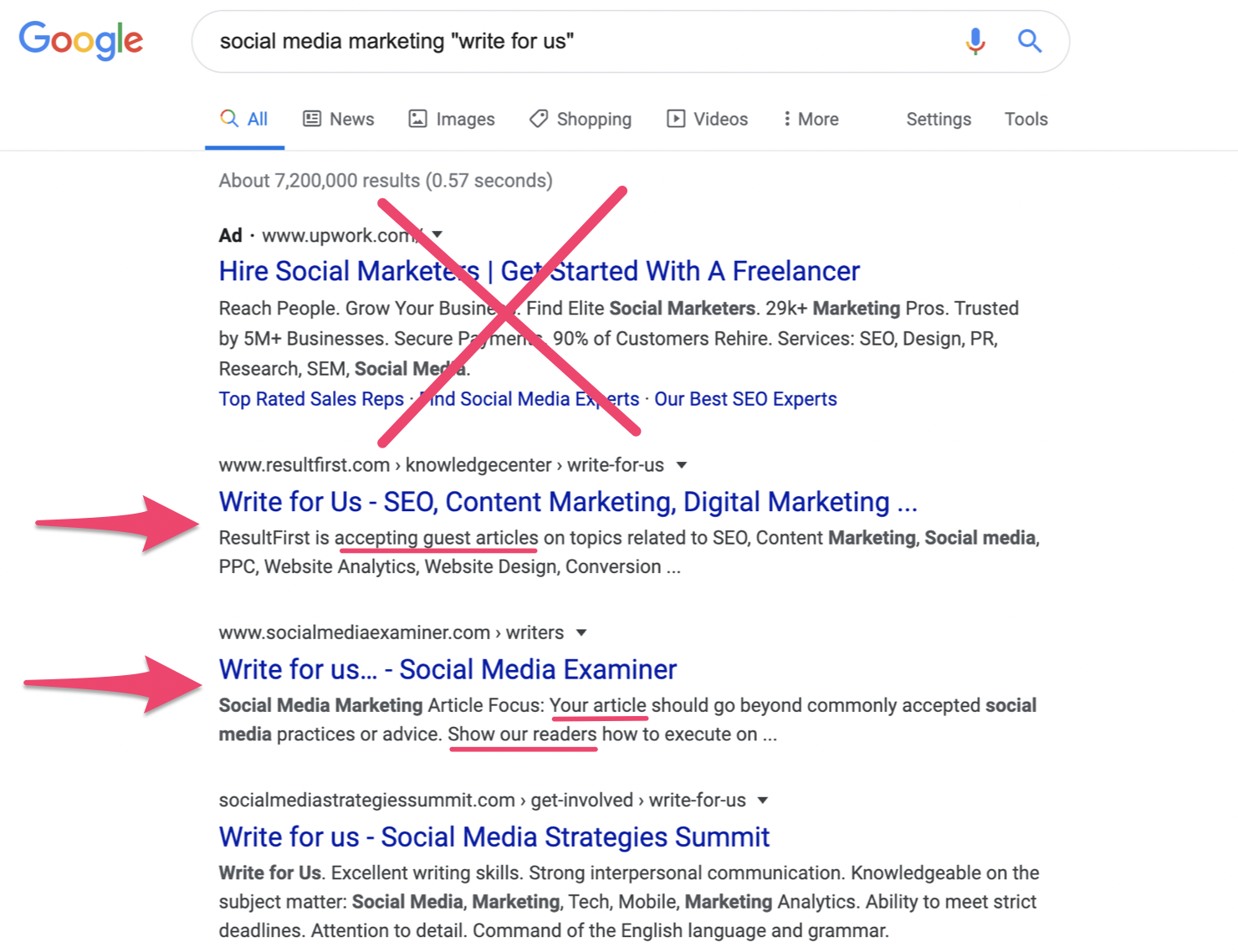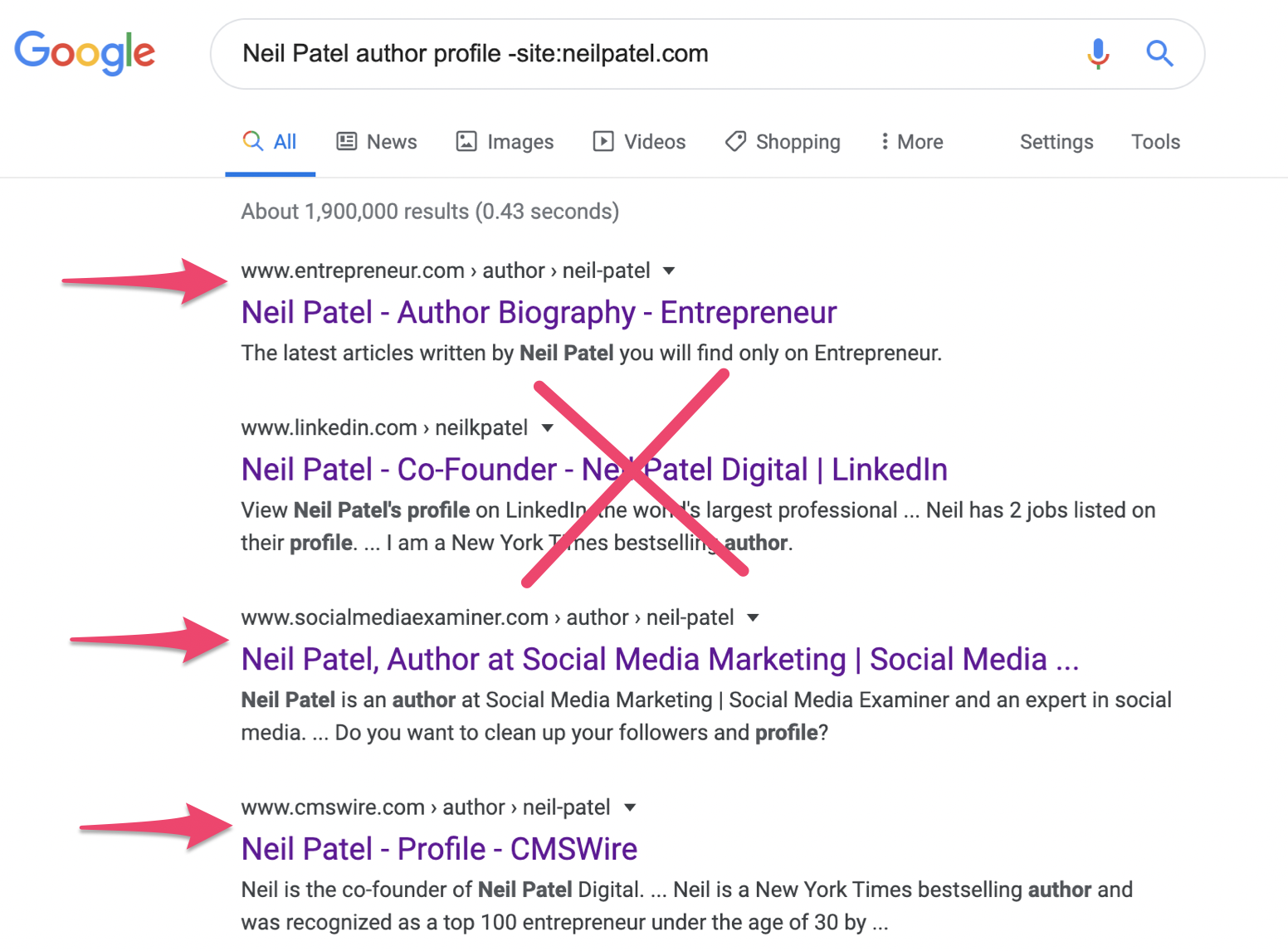
The benefits of guest blogging are tremendous for anyone with a website. I can’t name a better way to build high-quality backlinks and establish authority online.
Once you’ve created enough valuable content on your own website, it’s time for you to start looking for other sites that will publish your ideas.
Finding sites that accept guest posts is easy. But the web is full of spammy and low-quality sites that will publish any submission—stay away from these. Those websites will ruin your reputation and get you penalized by Google.
Discovering the right guest posing opportunities will require a bit more effort.
I created this guide using proven methods for finding the best guest blogging opportunities for any website. Regardless of your niche, brand, industry, or website type, you can build authority by following this process.
Leverage Your Network
As a kid, did you ever have to sell something as a fundraiser for your school or sports team? Knocking on front doors in your neighborhood selling candy, t-shirts, raffle tickets, or whatever.
It’s always easier selling to your grandparents, aunts and uncles, friends of your parents, neighbors, and basically anyone else who knows who you are.
This same analogy can be applied to guest posting. Instead of selling goods for cash, you’re exchanging content for links. Always take advantage of the resources at your disposal.
Reach out to your friends in the industry. Email any freelancers or ghostwriters that you’ve used in the past. Send a text to your point of contact at agencies you’ve worked with.
If these people don’t have their own website that’s a good fit for your guest blogs, they have connections to other websites that do. Maybe your old college roommate has a spouse that works at HubSpot. Or perhaps a golfing buddy has a niece or nephew that’s the Director of Marketing at a Silicon Valley tech company.
These types of connections can lead to excellent guest posting opportunities.
Google Search Strings
Believe it or not, Google is actually one of the best tools for finding guest posting gigs.
But you’ll need to dig a little deeper than just searching for, “where can I guest blog?” This will bring you to those spam sites that I referenced earlier, so we definitely don’t want that.
Instead, you’ll need to use a series of different search strings to find relevant and high-quality sites that publish guest posts. These are some of my favorites:
- “Keyword” + “Guest blog guidelines”
- “Keyword” + “Write for us”
- “Keyword” + “Guest post submission”
- “Keyword” + “This article was written by”
- “Keyword” + “Become a contributor”
- “Keyword” + “Submit your post”
- “Keyword” + “Want to write”
Here’s an example. If you’re a digital marketer, you might want to search for a keyword like “social media marketing.” Check out the SERPs when I pair that with “write for us.”

Not everything on this page will be a viable guest posting option. You can usually tell if it’s a legitimate opportunity by reading the meta descriptions, as opposed to clicking each link.
Ignore the ads at the top of the page. Start with the organic results, since these sites will have the highest domain authority. As you can see from what I’ve highlighted above, those first two organic results are perfect guest blogging opportunities.
The third result looks like a company is trying to hire a writer. You can easily just skip over that and continue scrolling.
Repeat this process for the first two pages of Google results for each search string that I’ve listed above. Then continue these steps for other relevant keywords in your niche.
When you’re done, you’ll have a dozens of potential opportunities on your list.
Identify Top Influencers in Your Niche
Depending on the industry you’re in, this will be easier for some of you than others. The idea here is to find out what sites are publishing content from the most influential people in your industry. Those are the types of sites you want to guest post for.
Let’s continue with the digital marketer example. Some top names in this industry include:
- Rand Fishkin — Moz & SparkToro
- Justyn Howard — Sprout Social
- Neil Patel — NeilPatel.com
- Joe Pulizzi — Content Marketing Institute
To find guest blogs by these people, you need to type a unique search string into Google. If you just search their name, the majority of results will be content published on their own sites; we don’t want that. So use this string instead:
Name author profile -site:theirURL.com
This string tells Google to look for this person’s name and author profile but eliminates a specific URL from the search results.
Here’s what it looks like if we use Neil Patel as an example.

Aside from Neil’s LinkedIn profile, three of the four top results are all websites that he’s contributed guest posts to. These are websites that should all be added to your list.
It’s worth noting that Social Media Examiner appeared in our first example as well. Any site that comes up multiple times during your research should be highlighted as a top prospect.
Evaluate Your Opportunities
If you’ve followed the first few steps above, you’ll have a list of at least 50 potential guest blogging opportunities. But it’s unlikely that every site that you’ve found is actually worth reaching out to.
You’ll need to go through a vetting process to see which ones are actually legitimate. Use this checklist to narrow your list and eliminate sites.
- Spam and Ads — Visit each website and eliminate any that look spammy or untrustworthy. If it’s full of ads and appears sketchy, remove it from your list.
- Niche Category — Delete every website that isn’t related to your industry. Some sites will have a wide range of articles covering different topics. Use your best judgment to see if your niche is appropriately categorized.
- Recent Activity — You might find a landing page with guest post submission guidelines, but it’s possible that the page is outdated. Review the latest blog posts to see if the website is actually publishing content. If nothing has been posted in months, or the most recent guest blog was from years ago, take the site off of your list.
- Domain Authority — Don’t submit guest blogs to any website with a lower domain authority than your own site. Eliminate any website with a domain authority below 30. Ahrefs has a free authority checker tool that you can use for this.
- “Nofollow” — If you’re only guest posting to build domain authority with backlinks, you need to make sure that you’ll actually get credit for those links when Google indexes the content. Check the outbound links from sites on your list. Eliminate sites using “nofollow” tags on guest posts.
Don’t be too picky during this evaluation process. If you’re left with just a handful of sites in the end, it’s not going to benefit you.
You should aim to have at least 20 or 30 solid leads when all is said and done. This will still leave you with plenty of writing opportunities if half of those sites ignore your inquires.
Final Thoughts
The first step to building authority with guest posting is finding the right opportunities.
Just because a website accepts guest blogs, it doesn’t mean that it’s a good fit for your name and brand. You’ll need to dig a little bit deeper to find high-quality sites that are willing to publish your content.
Make sure that your own blog has plenty of high-quality content before you start pitching to other websites. The best guest posting opportunities will usually have the strictest guidelines, so you need to make sure that your content will qualify.
